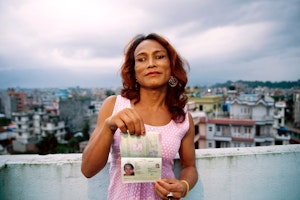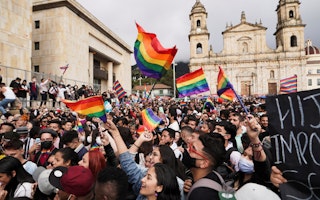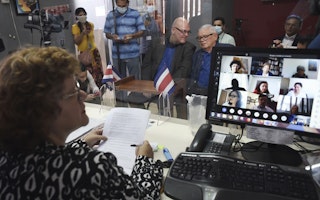Intersex Children Don’t Need Fixing
By Wiktor Dynarski

“The Intersex Rights Movement Is Ready for Its Moment,” proclaimed a recent headline in the Washington Post. That’s true—but this moment is only possible because intersex people are finally gaining visibility and making their stories heard.
For too long, intersex people were hidden: denied the truth about their bodies and medical histories, sworn to secrecy about their experiences, and weighed down by a legacy of stigma and shame. Intersex people have always existed, but in the 1960s, doctors began to treat being intersex as a birth defect that needed fixing—often by doing medically unnecessary “normalizing” surgeries and telling parents to keep their children’s intersex status a secret—sometimes even from the child themselves. The marginalization and abuses intersex people have endured were only possible because intersex voices were silenced.
Thankfully, those days seem to be coming to an end. In increasing numbers, intersex advocates are embracing their identities and speaking out about intersex rights—especially the right to make their own decisions about what is done to their own bodies.
In this video, Kimberly Zieselman, director of the intersex youth advocacy organization interACT, shares her own story and explains why visibility matters for intersex people and their families. That’s why interACT doesn’t just work on changing laws or medical policies—it also focuses on changing the media.
Whether it’s helping an intersex model tell her story to Teen Vogue, consulting with an MTV sitcom on their first intersex character, or informing journalists how to cover intersex stories [PDF] with accuracy and sensitivity, interACT’s youth advocates are changing the narrative. It’s time to listen to what they have to say.
interACT is a grantee of the Open Society Foundations. At Open Society is a video series highlighting the people and ideas that are inspiring our work—and changing the world.
Wiktor Dynarski was formerly a senior program officer with the Open Society Public Health Program and is now a team manager for the Reassigned Grants Unit of the Grants Management Support Group.


